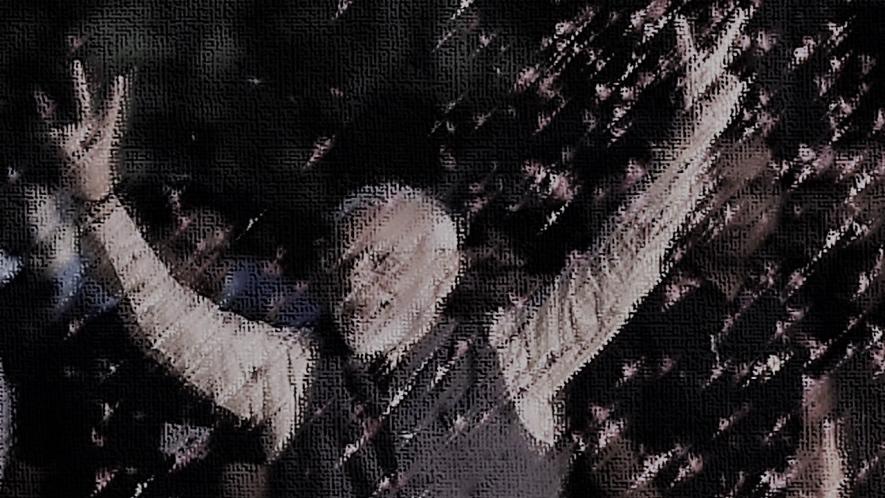Some Myths of Election Analysis

Like all elections everywhere in the world, India’s general election this year too has created its own mythology. Some of it was – understandably – created during the election campaign while some have been generated after the results were out and the BJP-led alliance emerged as a clear winner. Some of the most popular myths, currently occupying the minds of analysts, are- economic issues don’t matter, nationalism trumps everything, casteism is dead, and so on.
Such is the prevailing power of the mainstream media and apologists of the ruling party that these myths have become part of the discourse, and will certainly become entrenched as self-evident history. But, let’s take another, closer look at them.
Economic Woes Don’t Matter to the People
This is perhaps the most common of all myths, so much so that many progressive minded persons also willy-nilly subscribe to it. Joblessness was, and is, running high, inequality has grown, wages are abysmally low and stagnant, costs of many crucial services like education and healthcare are lethally high, and yet, people do not hold Modi and his government responsible. In fact, they give him an even stronger mandate. That’s the argument.
Also read: Meanwhile, on the Jobs Front…
What this thinking neglects to look at is this: were the people presented with an alternative? If you look at the campaigns of any of the major opposition parties (except the Left), the issues of economic distress were marginalised and ritualistic. Goods and Services Tax and demonetisation were repeatedly referred to, but they are not the sum total of economic distress. The Congress initially did talk about unemployment but after the nationalism narrative was adopted by the BJP as its main plank, they too faltered. Their thinking was clear from the manifesto, ‘we can offer 22 lakh jobs in government’, that’s all. Other opposition parties across the country – Samajwadi Party, Bahujan Samaj Party, Trinamool Congress, Rashtriya Janata Dal – were they hammering Modi on unemployment? They thought they were doing justice by devoting a few statements to it. But nobody had any clear-cut reasoning or reassurance to give. They had fallen into Modi’s trap, lock stock and barrel. He and his party completely bypassed the jobs crisis – so did the opposition.
So – if neither the ruling party nor the main opposition is talking about how jobs are to be created, what policies are to be brought in, how the country needs industrialisation etc., how farming can be saved, then how will people vote on this issue? Naturally, it becomes a non-issue in the campaign and in voting.
But that doesn’t mean it does not matter to people. That’s why, many journalists and others talked about people complaining about joblessness and low wages, the Association for Democratic Reforms (ADR) report flagged economic issues as the biggest concern of voters – and yet, people were not voting on that. Because there was no alternative on the plate.
Also read: What People Expect from Election Results
Nationalism Moves People more than any other issue
This is one of the most widespread of all myths. And, the election campaign as well as the results seem to indicate its validity. After all, the BJP ran its campaign almost solely on the Pulwama-Balakot issue, and the air strikes were portrayed as symbolising everything a great leader ought to be doing – decisive, bold, taking the fight to the enemy, creating respect in a macho world, etc. The increased vote share of BJP across the board is being attributed to this one single issue. It was also confirmed by people everywhere as a consideration.
But, here’s a question: how come at least four different states, with different political, social and economic conditions, did not see the same phenomenon? In Punjab, Odisha, Tamil Nadu and Kerala- situated in different corners of the country, the BJP fared badly. Punjab, in fact is a border state, with wars with Pakistan having been fought here. Yet, the BJP and its ally, the Akali Dal ended up with 37% votes compared to 35% in 2014 while the Congress jumped up from 33% to 40%. In Tamil Nadu, the BJP was a junior partner in the All India Anna Dravida Munnetra Kazhagam (AIADMK) alliance and they were wiped out. In Odisha, the BJP’s vote share did increase from 22% to 38% but it couldn’t beat the BJD which was way ahead at 43%. In Kerala too, the BJP remained limited to 13% vote share.
If nationalism trumps everything then what happened in these states? The argument may be given that BJP is not strong in these states and that it is hamstrung by having discredited allies like the AIADMK and Akali Dal. But that only proves the point that nationalism does not prevail over everything else!
Here too, it must be said, that the opposition parties made a mess by having a confused approach to the Balakot air-strikes, neither here nor there. The Congress went into a flummoxed silence after the strikes and could not counter the whole narrative, trying first to be counted for it, then raising questions about it. In short, the issue was handed over to the BJP to mould and present as they wanted.
Also read: So Many Chowkidars, Yet Look at the Scale of Loot
Casteism is dead
This is the bizarre, all-time favourite of the BJP and its supporters. Because they get around 50% of the vote share in places like UP and Bihar where they (and their allies) were head on with opposition alliances, the BJP thinkers claim that people have risen above caste. Conveniently brushed under the carpet is the fact, peddled repeatedly before the elections, that the BJP and its master strategists have crafted an unbeatable caste alliance themselves in several states. In UP, they had wooed and got on board various small caste-based outfits like the Apna Dal, Suheldev Bharatiya Samaj Party and Nishad Party; in Bihar, they had banked upon Janata Dal (United)’s (JDU) support among non-Yadav Other Backward Classes and Economically Backward Classes; in West Bengal, they assiduously wooed the Matua community, in MP and Rajasthan, they aligned with aggressive upper caste outfits; in Maharashtra, their state government declared Maratha reservation to win over that community and in Tamil Nadu, they were part of an alliance which included several caste-based parties.
Yes, the BJP must have got votes from several caste groups. But that is what happens every time. No caste votes 100% in one direction every time.
Another aspect of this casteism smoke and mirror is that it conveniently ignores the BJP’s record of oppression of dalits (and adivasis), especially in the past five years. By saying that casteism is dead, they are actually saying that there is no caste oppression and the resultant dalit anger. If that was the case, then how come BSP has got nearly 20% of votes in UP?
Also read: Elections 2019: Caste Gets Prominence Even In Poverty-Stricken Maharajganj
These myths are all flowing from a common source, which is nothing but the Rashtriya Swayamsevak Sangh ideology. It holds that the Hindu nation and its self-pride are supreme and that its nurturing is the task of RSS. Every election victory is analysed from this framework which holds that economic issues are minor, that defending the ‘nation’ is (or should be) upper most in true Hindus and election victories show the advance towards this goal. Sadly, many who do not subscribe to the RSS’s Hindu supremacist view also fall for these myths. And, in doing so, become part of the problem rather than offering a solution.
Get the latest reports & analysis with people's perspective on Protests, movements & deep analytical videos, discussions of the current affairs in your Telegram app. Subscribe to NewsClick's Telegram channel & get Real-Time updates on stories, as they get published on our website.
























